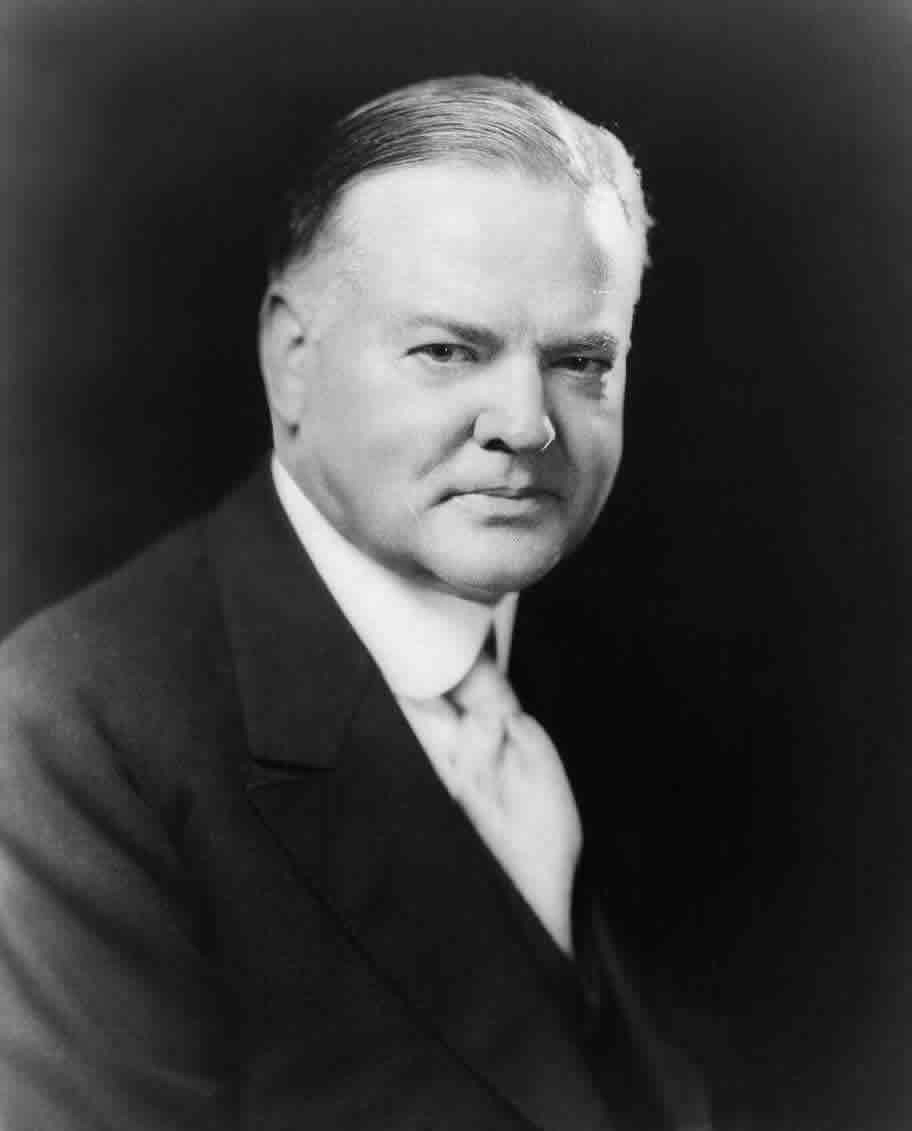Can we please end the lie of Hoover being a 'do nothing' president?
 |
| Herbert Hoover: the doingest do nothing president in history. |
You know who they remind me of? Herbert Hoover. When we were on the edge of a potential depression, Herbert Hoover said, ‘Let’s do nothing.’ That’s what these guys are saying.Schumer was talking about people opposing further ruinous stimulus bills during these economically troubling times that the government exacerbated in the first place...because as we all know, doing something whether we understand that something or not is always better than nothing. Right...?
Unfortunately for Schumer, history isn't his strong suit.
Did Hoover actually say "Let's do nothing."? Not that I know of. What we do know is that he said the following in retrospect of his actions in 1932:
Two courses were open to us. We might have done nothing. That would have been utter ruin. Instead, we met the situation with proposals to private business and to the Congress of the most gigantic program of economic defense and counterattack ever evolved in the history of the Republic. We put that program in action.That doesn't sound like nothing. In reality, he said he didn't do nothing. Things like "the most gigantic program...in the history of the Republic" actually sounds like a lot. Let's take a look at what really happened.
Following the market crash in October of 1929, Hoover sprang into action and successfully persuaded business leaders to not decrease wages or production. Several industries complied and kept production humming along and maintained wages. Of course, the crash was a price signal that there was malinvestment in the economy, likely including too much production and possibly unsustainable wages. Coupled with falling prices, the wage controls meant that in real terms, wages were rising at a time unemployment was spiking, the opposite of what should be happening. Deflation was a problem because wages weren't allowed to fall commensurately, creating labor cost strains relative to revenues.
The Federal Reserve then slashed interest rates (wait...doesn't this sound oddly familiar?), another form of price controls where production and investment is artificially encouraged to ramp up, censoring market signals that are desperately trying to tell its participants that they're producing too much. Its monetary holdings expanded six fold from 1929 to 1933.
This was all in the waning months of 1929.
The following calendar year, Hoover moved to control agricultural prices. He utilized the Federal Farm Board to lend money to grain producers to lower production in order to keep prices high, which turned into the outright purchase and stockpiling of grains. Of course, the artificial suppression of supply led to increased production which exacerbated the grain surplus. Hoover then tried to go after production itself, recommending a drastic cut in production. When this didn't work either, Hoover then liquidated its holdings, flooding the market with grains, resulting in the opposite effect Hoover was looking for. This was attempted in other agricultural industries such as wool with similarly disastrous results.
Also in 1930, he signed the Smoot-Hawley Tariff Act in hopes that the tariffs would encourage people to buy American made products (wait...was there a glitch in the Matrix?). Instead, this set off a tariff war, slowing international trade, and the depression worsened.
Later in his presidency, to pay for all of the government programs, he drastically raised taxes (wait...come on, are we living in Groundhog's Day or what?) with top income brackets topping 60%, higher corporate tax rates, estate tax rates, and a tax on checks issued by banks. This, of course, put further strains on businesses.
I have to stop here, only because I don't want to write books per post. But clearly, Hoover was far from "doing nothing". His destructive policies were everything libertarians are against and not only were his policies not in stark contrast to FDR's New Deal, his policies paved the way for it, which also extended the Great Depression.
Maybe Schumer can instead point to a real time in history where the government "did nothing" in response to an economic downturn that started as severely as the Great Depression. This is what happened in the depression of 1920. President Harding, to the objections of then Secretary of Commerce Herbert Hoover, slashed taxes and reduced the federal debt instead of intervening in the economy. President Coolidge took over after Harding passed and continued to "do nothing" in the sense that people like Schumer mean. Of course, Schumer's not going to point to that because that response allowed the economy to quickly recover and ushered in a decade of prosperity.
Likewise, the conservatives over at the Hoover Institution aren't helping with the mythology of the Hoover laissez faire legacy in their mission statement: "The principles of individual, economic, and political freedom; private enterprise; and representative government were fundamental to the vision of the Institution's founder." Or, given conservatives' seeming lack of understanding themselves on the difference between capitalism and crony capitalism, they may not see any contradiction there at all.
Unsurprisingly, Chris Hayes, the MSNBC anchor, completely fails to note the absolute historical inaccuracy of the Hoover comment and completely fails to show the disastrous result of the earlier stimulus bill, which Schumer played a major role in crafting.

